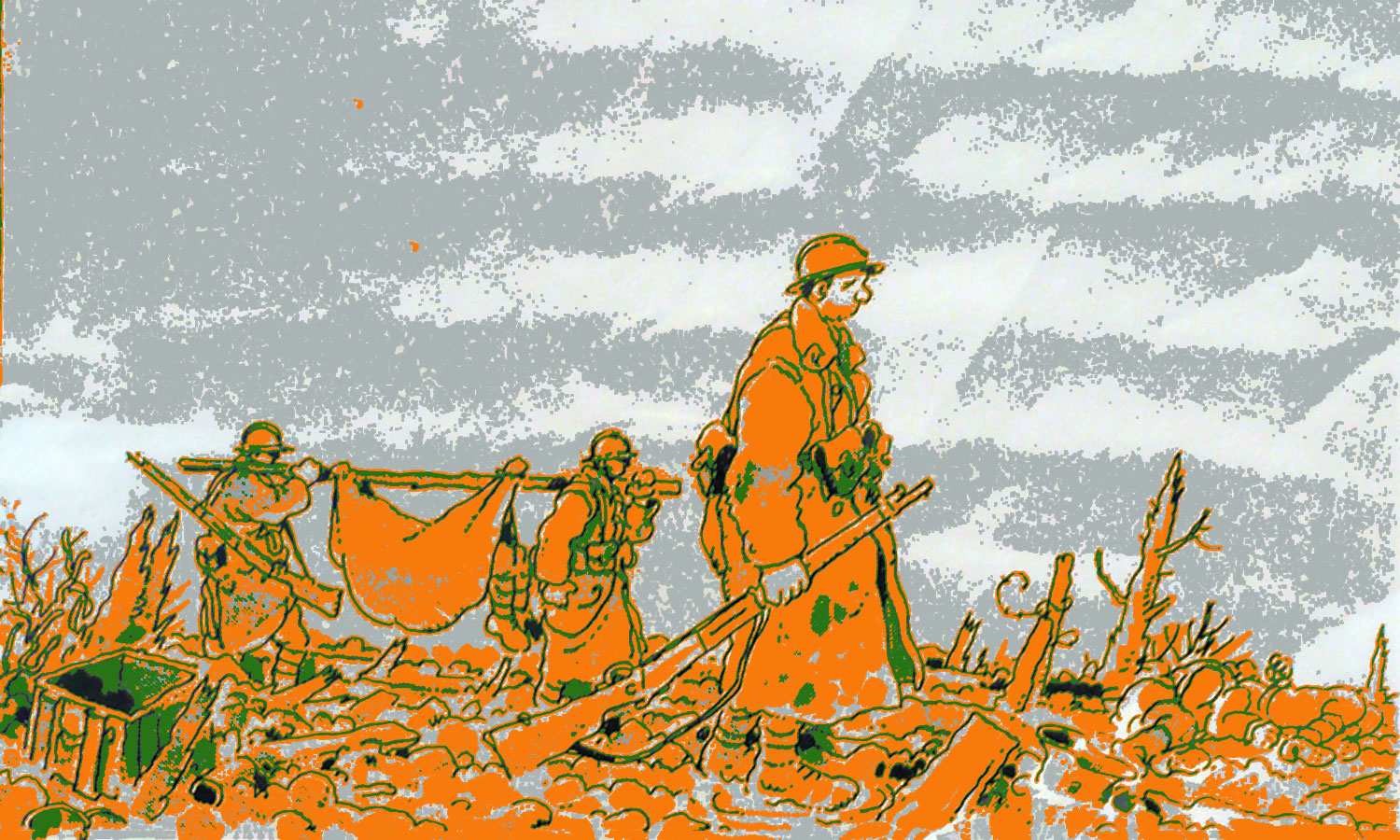
It’s called the Great War, not because of its nobility, but because of its atrocity. It was also the Trench War, because the soldiers buried themselves alive in a network of galleries, and I will also add because of the trenched throats, ripped limbs, sliced bodies.
“After the battle of the Marne and the race to the sea, the war becomes a war of position, a situation that was to last until 1918. From Nieuwpoort in Belgium to the Swiss border has developed, over 600 km, one of the most complex and successful defensive systems in the world, on two continuous and almost impregnable fortification lines defended by millions of men. At the trenches of surfaces corresponds a network of underground galleries, for shelter or war mines, a true termite mound, parts of which are even equipped with electric lighting and ventilation systems.” (source)
In 1914, on the brink of a conflict that would prove to be the most atrocious and deadliest of which our humanity has kept the memory, my grandfather Alexandre Bailleux de la Jonchère was going to die on the Chemin des Dames of sinister memory. Death on the field of honor is not the right expression. I would rather say slaughtered in an open charner-house. Open, yes, to make it easier to get to heavens … Alexandre left behind a very young widow of 16, Marguerite, pregnant with Loulou, my mother. She did not know her genetic father, since Alexander died five months before the birth of his only daughter. But his memory was very present in the house of my childhood where were enthroned several portraits of the hero, including one that I still have. Alexander had had himself made by a painter of his friends, to offer it, strange, to his cousins, as indicated by the dedication. It is in memory of this stranger so present that I dedicate these few lines, before we forget it altogether, which is our fate to all. Farewell, Alexandre Bailleux. Loulou’s son blesses you.
Already the stone think where your name will take place
Already you are just a golden word on squares
Already the memory of your loves fades away
Already you’re only the one who’s perished
1914-1918: 10 million dead and 20 million wounded
Half of the young French born in 1894 and thus aged 20 in 1914 disappeared at the end of the conflict. There are 750 shot in the Italian army for example, between 600 and 650 in the French army, 330 in the British army, 48 in the German army. There are about 300,000 “broken jaws” in Europe, including 15,000 in France. The human toll of the conflict amounts to 9.5 million dead or missing including 1.4 million French, 2 million Germans and 1.8 million Russians. 73.3 million men are mobilized. 48.2 million by the allied powers including 7.9 million French, 8.9 million British and 18 million Russians. 25.6 million by the Central Powers of which 13.2 million Germans and 9 million Austro-Hungarians. The number of shells fired by belligerents during the four years of the conflict is estimated at about 1 billion. 15% of them have not exploded and are still accused today of polluting the soil and water. In France, major ground of the conflict, 3 million hectares are declared unfit for agriculture. The reason: the presence in the ground of shells and bullets but also of human corpses or animals. (source)


